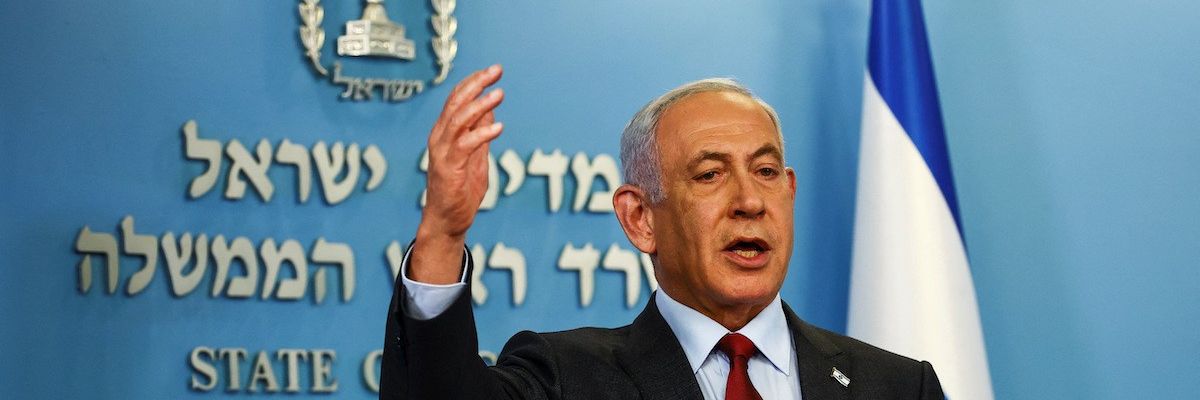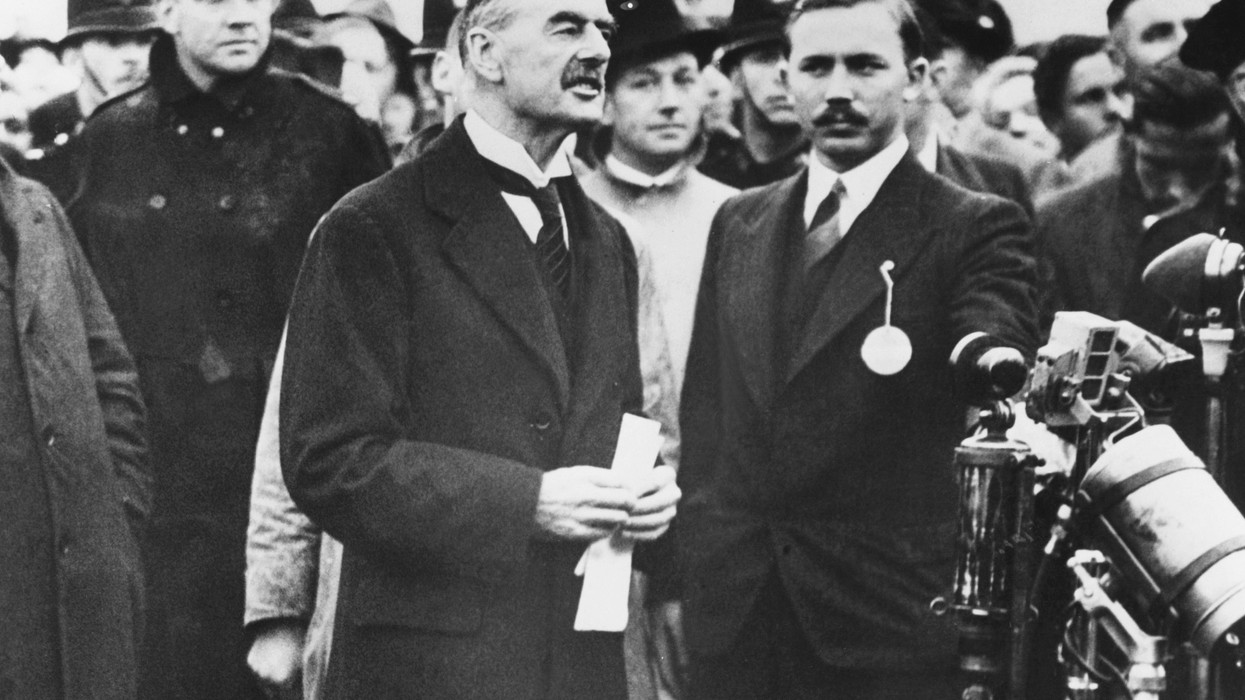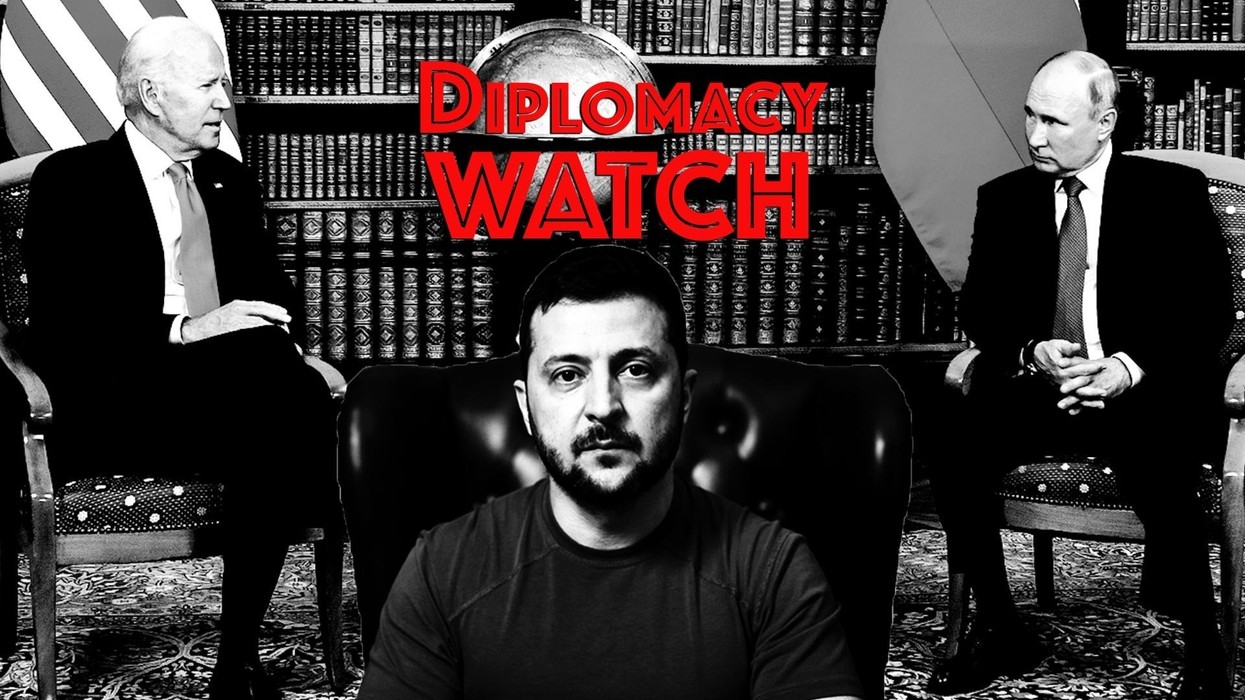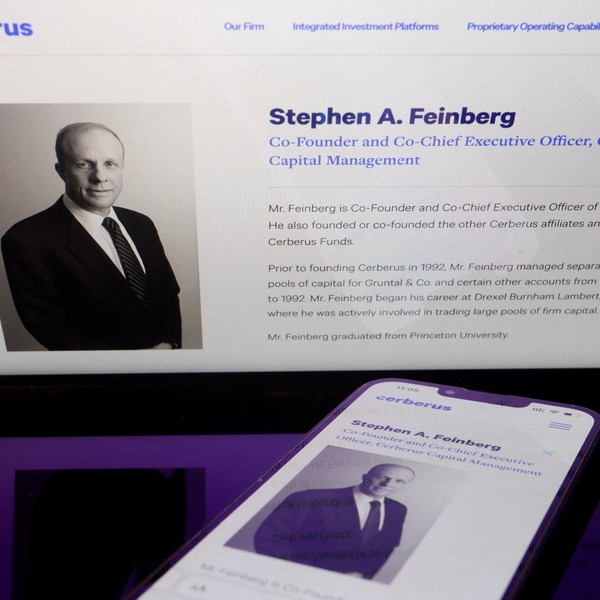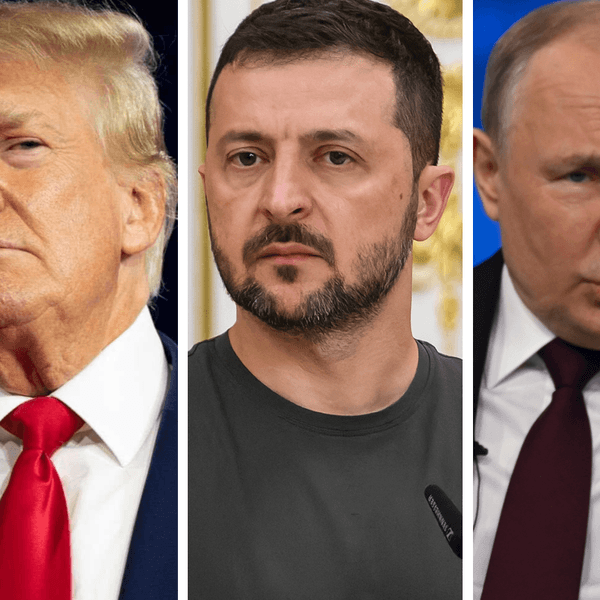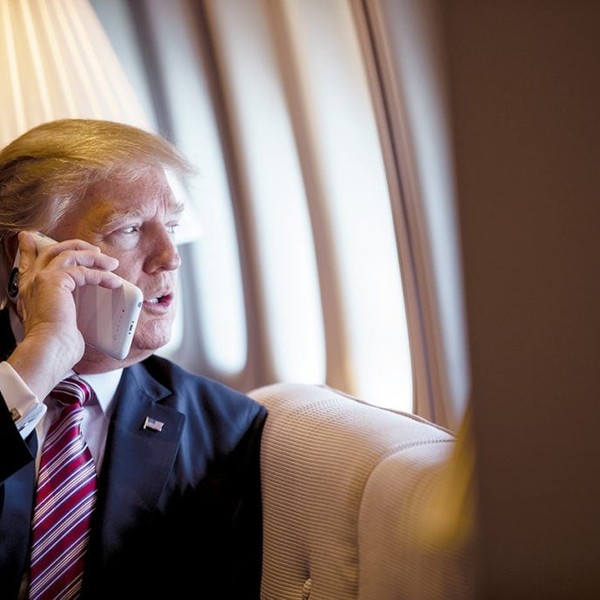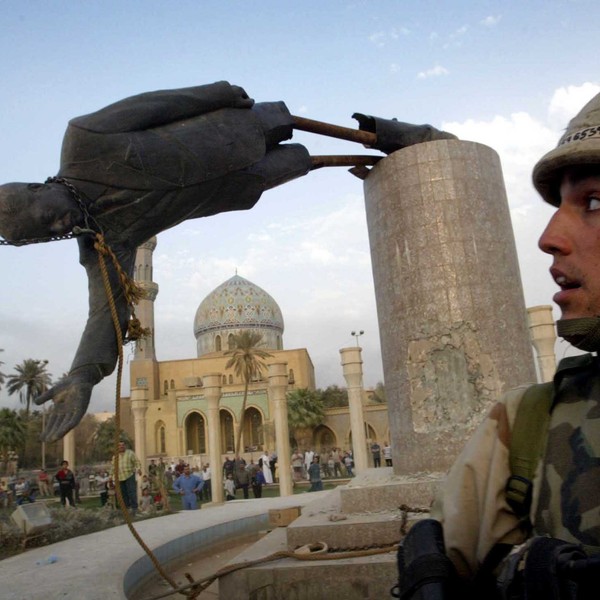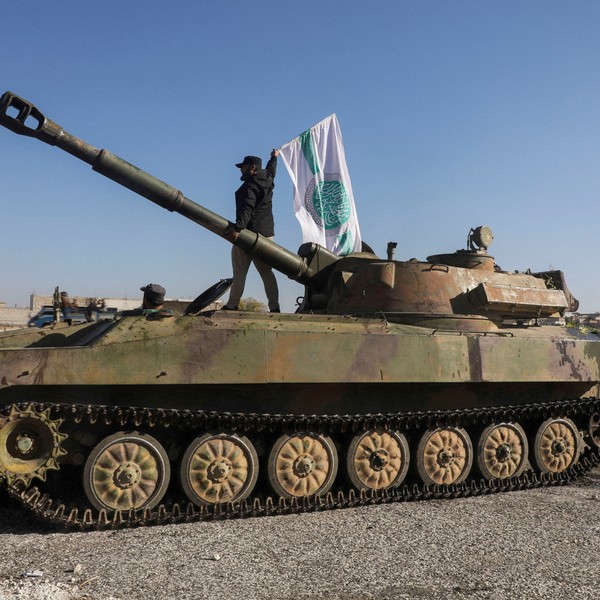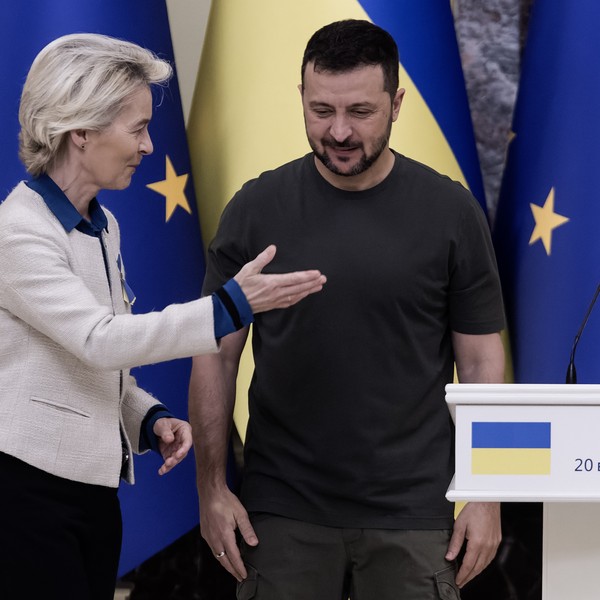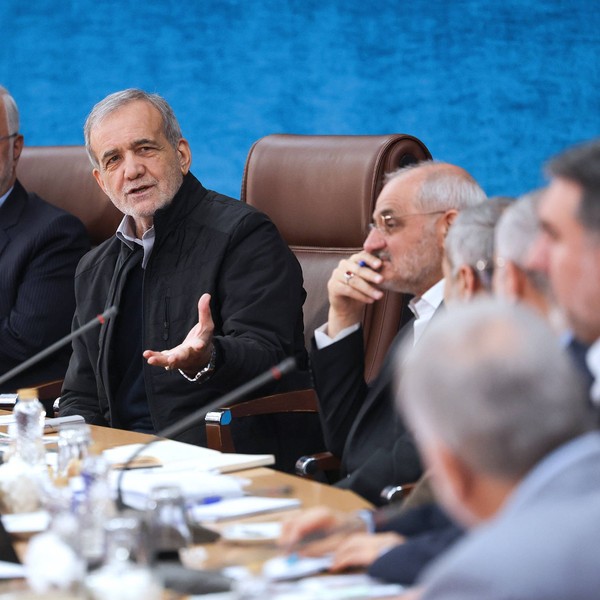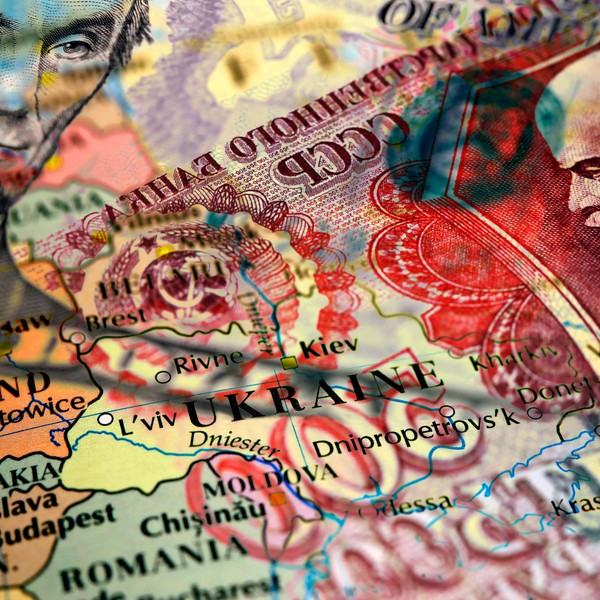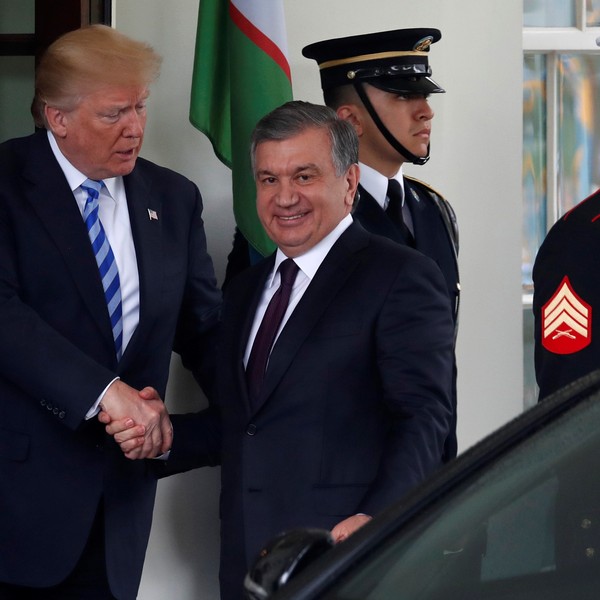Nearly a year into the full-scale invasion of Ukraine that Russian President Vladimir Putin launched on February 24, 2022, a resolution to the conflict seems as far away as ever. Russia’s initial expectation of a quick victory and a complete takeover of its neighbor was quickly dashed as Ukrainian resistance proved far more effective and resourceful than previously thought possible, certainly by Moscow. Russia’s war of aggression united NATO, the West, and a huge majority of United Nations members in condemnation of the invasion, and NATO members opened a pipeline of advanced armaments and financial assistance that enabled Kyiv to beat back Russian advances in many sectors.
The positions taken by many governments in the Middle East, however, have proven a notable exception to the global groundswell of support for Kyiv. Ukraine’s advances on the battlefield and in the halls of diplomacy have not done much, even almost one year on, to move the needle among regional leaders, who continue to maintain cozy relations with Moscow while keeping criticism of Russian aggression and probable war crimes to a bare minimum. The refusal by US regional partners to do more to help Ukraine—aside from providing limited humanitarian aid—amounts to de facto political support for Russia and threatens to strain relationships with some of America’s key partners in the region, most notably Saudi Arabia and Israel.
Middle East partners of the United States have ample reason for minimizing their involvement in the Ukraine conflict and maintaining close ties to Russia—though none likely to assuage US displeasure. But this balancing act may not last forever. If the war escalates, perhaps becoming a more direct conflict between Russia and NATO, Arab states and Israel may find it much more difficult to stay on the sidelines, unless they want to risk sabotaging their ties with the United States.
Where Middle East Nations Stand
Since the war began, little has changed in the stance of key Middle Eastern countries toward the conflict: most see no advantage in entangling themselves in what they view as a European fight in which they have few stakes. More importantly, they are reluctant to alienate Russia, with which many of them maintain significant diplomatic, military, and economic links. Saudi Arabia, which maintains a close partnership with Russia, colluded with Moscow to cut oil production in October 2022, despite pressure from the Biden administration to increase supply. Riyadh maintains significant investments in the Russian oil industry, including the purchase last February— just as the war broke out—of a $500 million stake in leading Russian energy companies Gazprom, Lukoil, and Rosneft. The United Arab Emirates, like Saudi Arabia, continues to do business with Russia and sees itself as a potential diplomatic go-between. In November, for example, Abu Dhabi hosted secret talks between Moscow and Kyiv on a possible prisoner swap. The Gulf Arab states have in general been reluctant to go along with western sanctions on Russia, with most adopting positions similar to those of Saudi Arabia and the UAE, preferring to maintain business as usual while providing a safe haven for Russian assets and oligarchs’ megayachts—though Kuwait, which suffered an invasion and attempted annexation by Iraq in 1990–91, is a notable exception.
Egypt’s position is similar to that of the majority of the Gulf states, and has likewise remained largely static since the start of the war. Cairo’s burgeoning economic and political ties with Moscow include a $25 billion dollar contract for Russian construction of a nuclear power plant, major arms deals (Russia accounted for about 41 percent of Egyptian weapons purchases between 2016 and 2020), and significant trade and tourism (with Russian visitors creating approximately 2.9 million Egyptian jobs). Egyptian President Abdel Fattah el-Sisi also has a close relationship with Russian President Vladimir Putin, which has so far been unshaken by the latter’s invasion of Ukraine. Egypt, like the Gulf Arab states, has been muted in its criticism of Russia and unwilling to join in imposing international sanctions on Moscow.
Closest Ally, Biggest Disappointment
Israel has in many ways proved the biggest disappointment when it comes to US efforts to garner support for Ukraine. Ukraine initially had reason to be hopeful of Israel’s strong backing: both countries have an at least nominally democratic form of government and Ukraine is home to one of the largest Jewish populations in the world (Ukrainian President Volodymyr Zelenskyy is himself Jewish). In addition, Israel’s bête noire, Iran, is taking an active part in the war on Russia’s side, providing Moscow with hundreds of armed drones that have predominantly been deployed against civilian targets and that have boosted Iran’s influence and arms industry. All this, as well as Israel’s close relationship with the United States, may have led Ukraine to expect that Israel would be more supportive.
Israel, however, took an arm’s-length approach to the conflict from the very beginning. The government was slow to issue a robust condemnation of the unprovoked Russian invasion. Then Israeli Prime Minister Naftali Bennett reportedly tried to encourage Zelenskyy to negotiate and to accept some of Russia’s territorial demands. In October 2022, the Ukrainian Embassy in Tel Aviv sent a letter officially requesting Israeli-made air and missile defense systems, including “Iron Beam, Barak-8, Patriot, Iron Dome, David’s Sling, Arrow Interceptor and Israeli support in training for Ukrainian operators.” But the request was slow-rolled by Israel, ostensibly because of fears that weapons supplied to Ukraine could end up in Iranian hands. Some Israeli sources also suggested that Israel faced its own shortage of air and missile defense equipment with which to defend itself from attacks by Iran or Hezbollah, another roadblock preventing the export of these systems to Kyiv.
The main reason for Israel’s reticence, however, is its desire to remain on good terms with Russia, whose forces in Syria have been instructed not to oppose Israeli air sorties targeting Iranian assets and arms shipments to Hezbollah. Israel fears that providing weapons to Ukraine would endanger this arrangement. As former Israeli Defense Minister Benny Gantz made clear to his Ukrainian counterpart in October, while Israel has provided humanitarian assistance and “life-saving equipment,” the bottom line remains that it “will not provide weapon [sic] systems to Ukraine.”
No Change Expected from Netanyahu
Despite initial hopes that the new Israeli government might reevaluate its policy on Ukraine, such a development appears unlikely. For one thing, its calculus in Syria remains the same. In addition, right-wing supporters of the current Israeli stance cite the need to keep lines of communication with Putin open, claiming that Israel could one day play a valuable mediating role between the West and Russia. Moreover, while there has been some disputation among political elites about the wisdom of withholding more extensive aid to Ukraine, there has been no groundswell of public support for a more aggressive Israeli stance in support of Kyiv. Israeli public opinion is strongly sympathetic to Ukraine and critical of Russia’s actions, but few Israelis seem to favor providing lethal aid to the Ukrainians, particularly if it means picking a fight with Moscow. Russia has been keen to underscore potential consequences if Israel changes course. In what has been interpreted as a stark warning, authorities recently threatened to shutter the Russian branch of the Jewish Agency for Israel, which helps Jews emigrate to Israel.
As the impasse over arms supplies continues, Ukraine-Israel relations may be entering a chillier phase. In late December, a day after being sworn in as Israel’s prime minister, Benjamin Netanyahu called Zelenskyy to ask him to vote “no” on a United Nations General Assembly resolution that would require the International Criminal Court to issue a legal opinion on the consequences of Israel’s occupation of the West Bank, including its settlement polices and “measures aimed at altering the demographic composition, character and status of the Holy City of Jerusalem.” Zelenskyy was noncommittal, instead pressing Netanyahu to change policy and provide missile defense systems that Israel had previously refused to send. Netanyahu demurred and Zelenskyy instructed Ukraine’s UN ambassador not to show up for the vote, to Netanyahu’s apparent dismay. Kyiv’s relations with the new Israeli government, it seems, are not off to the best possible start.
Israel Profiting from Ukraine
Israel’s refusal to extend much in the way of military assistance to Kyiv has not harmed its arms industry. In fact, business is booming. Israel’s arms exports hit $11.3 billion in 2022, a 30 percent increase over the previous year. This bonanza is attributable, ironically, to a growing sense of insecurity in Europe and elsewhere that has been instilled by the Ukraine war, as well as to the opening of new markets in the Gulf as a result of the Abraham Accords. Israel’s battle-tested armaments have, for many buyers, proven preferable to Russian-made weapons, whose technical problems have been on stark display in Ukraine. Israel recently sold a Spyder air defense system to the United Arab Emirates, and has reached an agreement to sell a Barak MX air defense system to Morocco. The sale of such systems abroad while denying them to Ukraine casts some doubt on Israeli assertions of a domestic shortage of air defense equipment. The Israeli-made Arrow 3 anti-ballistic missile system, jointly developed by the US and Israel, is slated for integration into the European Sky Shield initiative, which includes 14 NATO members and Finland. Israel closely guards its list of customers, but other Israeli weapons systems, including drones and spy aircraft, are also brisk sellers in Europe and elsewhere.
Regional Reluctance, in Context
The diffidence of America’s closest allies should come as no surprise. Key Arab states, with public opinion behind them, have sought in recent years to put some distance between themselves and the United States in an effort to demonstrate their independence, express distaste for US regional policy, and appeal to nationalist sentiment. Cairo, Riyadh, Abu Dhabi, and others have also come to see Washington as a mercurial and unreliable partner, a position dating to the George W. Bush administration’s invasion of Iraq and continuing through Barack Obama’s announced intention to execute a “pivot to Asia.” Former President Donald Trump’s fondness for regional autocrats and his determination to protect the Saudis from political fallout from the Khashoggi murder are well known, but he, too, caused quite a bit of unease in regional capitals. Trump’s frequent and sudden policy shifts on Syria, Iraq, and Afghanistan discomfited Arab partners. And his waffling on the defense of Saudi Arabia following an Iranian attack on oil facilities in 2019, as well as other mixed signals on Saudi policy, were met with alarm in Riyadh. The advent of the Biden administration, which promised to put human rights at the forefront of US foreign policy, and which has had harsh words for the kingdom and its crown prince, Mohammed bin Salman, only reinforced the impression of a fickle United States looking to dump on its partners on its way out of the region.
In this reading of United States policy in the Middle East, it only makes sense for key Arab states to triangulate between Washington and Moscow, establishing what is, in effect, a 21st-century version of the Non-Aligned Movement of the 1950s and 1960s, which has contributed to the erosion of American influence in the region, not to mention its importuning on Ukraine. Israel’s approach is less strategic and more tactical. Its refusal to extend valuable military assistance to Ukraine is centered on narrow operational concerns in Syria, and not, generally speaking, on matters of geopolitical positioning. It is also the case that Netanyahu sees significant political and electoral value in touting his relationship with Putin and other authoritarian leaders. In some ways, this blinkered approach makes Israel’s reluctance to offer additional aid to Ukraine even less palatable in Washington than that of the Gulf states.
The View from Washington: It Expects Better
Nevertheless, the United States has a right to expect more support from its Middle East allies, not only for Ukraine, but for US efforts to lead the West in responding to a critical threat from Russia to the US-engineered rules-based international order. Israel, Egypt, and the Gulf countries have received hundreds of billions of dollars in US foreign military assistance and arms sales over the decades, as well as timely military interventions to protect and defend allied regimes, including US intervention in the “tanker war” of the 1980s and Operations Desert Shield and Desert Storm in 1990–91. Despite their flirtations with Russia, the region’s leaders fundamentally understand that the United States remains the chief guarantor of their security, a role that neither Moscow nor, for that matter, Beijing is ready or willing to assume.
In addition, eight countries in the region, Israel, Egypt, Bahrain, Jordan, Kuwait, Morocco, Qatar, and Tunisia, have been designated Major Non-NATO Allies (MNNA) of the United States. This designation comes with significant “military and economic privileges” similar to those enjoyed by NATO countries. While MNNA status does not create any US security commitments, it constitutes a major diplomatic coup for the designated partner and provides a framework for security and defense cooperation, to which both parties contribute. Israel in particular is seeking to deepen its relations with NATO, making its reluctance to provide military aid to Ukraine even more discordant.
As NATO Secretary-General Jens Stoltenberg warned in a December 2022 interview that this may change if the conflict escalates and becomes “a full-fledged war that spreads into a major war between NATO and Russia.” In that case—and especially if the Russian threat to employ a tactical nuclear weapon becomes more than a bluff—US allies in the Middle East will come under much greater pressure from the US administration and Congress, the European Union, and NATO to cut or reduce ties with Russia, enforce sanctions, and step up aid to Ukraine, including military assistance where possible. Anything less will likely be viewed as furnishing active assistance to the Russian war effort, and could cause lasting damage to key US partnerships. The Biden administration is not looking to add to its pile of tense relationships and intractable problems in the Middle East, but this one may be unavoidable.
This piece has been republished with permission from the Arab Center Washington DC.
